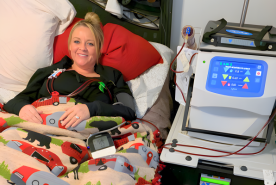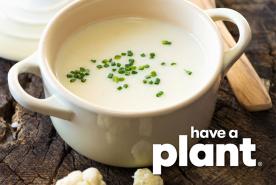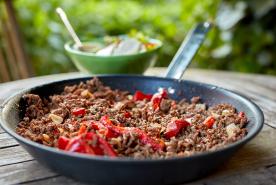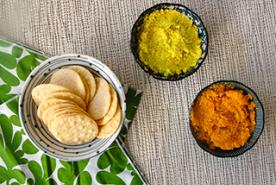Last updated: August 28, 2024
Medically reviewed by: NKF Patient Education Team
Diet is a key part of your hemodialysis treatment. You may need to limit fluids and change your intake of some foods and condiments.
About Hemodialysis and Your Diet
At the point when you need hemodialysis, your kidneys cannot remove enough waste and fluid from your body. So, your diet must help your body adapt to this change while also keeping you well-nourished. You may need to limit fluids, certain foods, and/or condiments. The kidney dietitian at your dialysis center will help you plan a diet that fits your needs. This plan is based on:
- Your lab test results
- How much urine you still make
- Your hemodialysis treatment schedule. If you do daily treatments at home, you will have fewer limits on fluid, potassium, and phosphorus.
- Your nutrition status. Good nutrition status includes:
- Healthy amount of muscle mass and muscle strength
- Healthy weight without large changes up or down
- Gaining the right amount of water weight between dialysis treatments (this means keeping a healthy dry weight)
- Healthy blood levels of a protein called albumin. Albumin is a type of protein in your blood. If the albumin level is too low, it may mean you are not eating enough protein or calories.
- Healthy blood levels of other nutrition-related labs such as vitamins and minerals
The Basics of Good Nutrition on Hemodialysis
When you’re on hemodialysis, you usually need to:
- Eat more high protein foods
- Eat less foods high in sodium and salt
- Eat less potassium
- Eat less phosphorus
- Drink and eat less fluid, including coffee, tea, water, soup, and any food that is liquid at room temperature
These diet changes are usually needed more for people who dialyze in-center three times per week. If you do frequent daily or nocturnal home hemodialysis, there will likely be fewer limits on food and fluid intake.
The Reasons for Changes to My Diet
In general, changes in the diet help to decrease the effects of kidney failure on your body. For example, limiting phosphorus doesn’t help to improve kidney function, but it does help to improve the health of your bones. Likewise, limiting fluid decreases stress on your heart. Eating well on hemodialysis should also mean that it makes you feel better.
On the other hand, if you still have some kidney function, you want to do everything you can to keep that function. Talk to your healthcare team about your residual kidney function, which means that your kidneys are still working enough to make urine (pee) and to do other jobs, like making red blood cells. One important way to keep your residual kidney function is through meeting your blood pressure goals. Diet can help if you limit sodium and salt, and also limit fluids to the point that you don’t build up too much water weight between dialysis treatments. Meeting your blood glucose (sugar) goals (if you have diabetes) is also important for keeping kidney function.
How to Follow My Diet
Your kidney dietitian will show you how to:
- Read nutrition facts labels on foods
- Make the best food choices
- Measure your fluid intake
- Take the right nutrition supplements
Your dietitian will also make a diet plan that fits your needs based on the foods and drinks that you like. Your dietitian may also work with your social worker if you are having trouble paying for or finding the foods you need.
Nutrients
The next sections below describe the nutrients that need extra attention when you’re on hemodialysis. All nutrients are important, but eating the right amount of these nutrients will help you feel better on hemodialysis.
Protein
People on hemodialysis usually need to eat more protein. Protein helps you keep healthy blood protein levels for overall good health. Protein also helps keep your muscles strong, helps wounds heal faster, and keeps your immune system strong. Eat a high protein food (lean meat, poultry, and pork, fish, eggs, or a meat alternative) at every meal, or about 8-10 ounces of high protein foods every day.
Sodium
For people on hemodialysis, sodium intake should be the same as it is for most everyone else. Sodium intake should be less than 2300 milligrams per day. This is equal to one teaspoon of salt. This means a lot more than not using a saltshaker, but also limiting foods with high levels of sodium listed on their nutrition facts label. Some foods that don’t taste salty can have a surprising amount of sodium when you check their nutrition facts label. Avoid high sodium foods like deli meats and chips. Less sodium in the diet helps prevent fluid from building up between dialysis treatments and helps reduce thirst. Less sodium also helps keep your blood pressure within your goal range.
Potassium
Limits on potassium in the diet are based on your specific blood levels. People who do frequent hemodialysis at home usually do not need to limit potassium. If you do need to limit potassium, discuss options with your dietitian.
The potassium from meat and dairy products is absorbed more easily than from fruits, vegetables, legumes, nuts, and seeds. So a plant-based diet is possible when you’re on hemodialysis. However, you may need to limit portion sizes of certain plant-based foods when your potassium levels are very high. Avoid foods with additives like acesulfame potassium and potassium sorbate, as they are easily absorbed. Do not use salt substitutes that contain potassium.
When potassium in the blood is too high or too low this can cause heart problems and even death. Therefore, it’s very important to keep track of your potassium levels. Potassium binders are medications that can lower your potassium levels, and they may make it possible to add more foods to your diet. Your healthcare team can also adjust the dialysate (the cleansing fluid used during dialysis) to help lower your potassium.
Phosphorus
Phosphorus levels in the blood can become too high in kidney failure. Hemodialysis does not effectively remove phosphorus. This leads to weak bones and phosphorus binding with calcium to settle into blood vessels and the heart. Therefore, you may need to limit phosphorus in your diet, depending on your lab results. The best way to improve your diet overall and to decrease your phosphorus load is to avoid processed foods. Check labels for additives with PHOS, such as disodium phosphate. Phosphate additives are inorganic and are much more easily absorbed. Plant-based foods with organic phosphates like nuts and seeds are absorbed less. Animal-based foods like meat and dairy products have inorganic phosphates that are more easily absorbed. Therefore, eating more plant-based healthy foods instead of processed foods will decrease the phosphorus load. Phosphorus binders and phosphorus blockers are medications that also lower your phosphorus levels, and they may make it possible to add more foods to your diet.
Fluid
People on in-center hemodialysis usually need a fluid restriction, but the amount depends on how much urine they still make. So, the restriction can range from one to two liters or more per day. Most people on home hemodialysis do not need a fluid restriction. Your healthcare professional or dietitian will help you determine the right amount of fluid to drink each day.
A sudden increase in weight, along with swelling, shortness of breath, or a rise in your blood pressure may be signs that you are drinking too many fluids. Tell your dialysis care team if you are having any of these problems. Check your weight at the beginning of each treatment. Ask your dietitian for creative ways to cut down on the amount of fluid you are drinking.
Fluid is any food or beverage that is liquid at room temperature. Some examples are:
- ice
- beverages like coffee, tea, sodas, juices, and water
- frozen desserts such as ice cream, sherbet, or popsicles
- gelatin
- gravy and soups
Calories
Calories give you energy from all the foods you eat and beverages you drink. The number of calories you should have are based on individual needs and your dietitian will work with you to determine the right number for you. Age, weight, height, sex, exercise level, and other factors are considered. An important goal is to get your calories from nutrient-dense foods, which means foods that have a lot of healthy nutrients for the number of calories you take in. For example, you will get a lot of healthy nutrients from a fruit rather than a candy bar, and most likely the candy bar will add more calories that are less healthy because it has more sugar and fat.
Vitamins and Minerals
Vitamin and mineral needs are also specific to each person. Eating a wide variety of foods gives your body the vitamins and minerals it needs each day. In addition to a good diet, your healthcare professional may order special vitamin and mineral supplements. Kidney disease and dialysis change the amounts of vitamins and minerals your body needs. Also, your special diet may limit some food groups that would normally provide important vitamins and minerals. Take only those supplements ordered by your kidney healthcare professional, since certain vitamins and minerals can be harmful if you are on dialysis. Also, check with your healthcare professional before using any herbal remedies or any other type of dietary supplement, as some of these may be harmful for people with kidney disease.
Additional Considerations and Your Kidney Dietitian
As is true for all people, the diet for people on hemodialysis should be heart healthy. This means limiting many high fat, highly processed foods. Your dietitian can explain which foods in your diet might not be heart healthy, especially foods high in saturated fat like butter and fatty cuts of meat. If you have diabetes or other conditions that affect your diet, your kidney dietitian will help you work them into your diet plan.
Metabolic acidosis occurs when acid builds up in your body. This acid can weaken bones and muscle and can destroy your remaining kidney function. It is mainly treated with the bicarbonate in your dialysate. Talk to your healthcare team about how metabolic acidosis is being managed with your treatment. A focus on including more fruits and vegetables in your diet and eating less animal-based foods like dairy products and meat may be helpful.
If you’re losing weight because you’re not able to eat enough, your kidney dietitian may order a nutrition shake, pudding, or bar to give you extra calories and protein.











